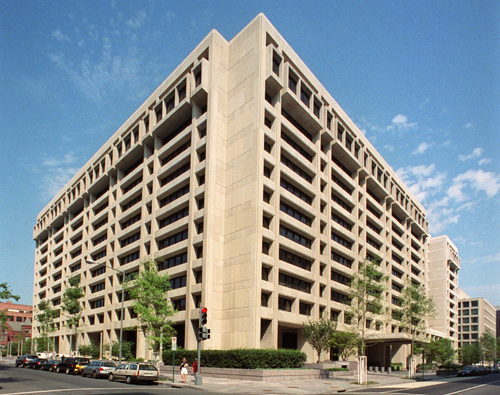Barely masked in the International Monetary Fund (IMF) downgrade of U.S. GDP growth for 2014 was a warning. Without policy changes, which include investment to create jobs and infrastructure, the American economy continues to have downside risks. Absent any of that investment, the IMF did not provide a further forecast. But if it did, the numbers would have to be grim.
The IMF’s concern was based primarily on America’s employment situation, with its foundation in the forecast that full employment will not return until 2017. The organization pointed to its anxiety about overall joblessness, the situation of people who have been out of work for more than 27 weeks and the 50 million Americans who live in poverty. Unfortunately, it would be hard to point to a single major policy initiative taken by the federal government to improve these conditions. Debate over the debt ceiling has been heated enough that spending on efforts to improve the jobs situation is unlikely.
The IMF’s assessment of long-term growth in the United States was more grim than its 2014 assessment:
[W]e’ve also looked at the trend for growth going forward, and essentially based on the aging of population and productivity trends, which have not kept up with earlier expectations, we have revised downwards our projection for the long-term growth rates of the United States to around 2 percent. That is clearly, significantly lower than the 3 percent average that we have seen between 1948 and 2007.
It would take a major change in federal government policy to address the effects of productivity as well. Gridlock in Washington, which could continue for years, makes revisions to current laws nearly impossible.
ALSO READ: Ten States With the Slowest Growing Economies
The actions of the Federal Reserve, particularly to keep interest rates low, may no longer be enough on their own to push economic growth by making money available on a very favorable basis. If there is any hint of what the Fed plans to do in the year ahead it is to raise rates, or perhaps keep them at the current level. This is despite that fact that many economists believe the Fed may lower its own forecasts for GDP growth and unemployment improvement.
If the IMF is correct, and U.S. economic growth depends on federal government decisions, then its 2% forecast will be far too high, and the odds that GDP growth will end moves much, much higher.
It’s Your Money, Your Future—Own It (sponsor)
Are you ahead, or behind on retirement? For families with more than $500,000 saved for retirement, finding a financial advisor who puts your interest first can be the difference, and today it’s easier than ever. SmartAsset’s free tool matches you with up to three fiduciary financial advisors who serve your area in minutes. Each advisor has been carefully vetted and must act in your best interests. Start your search now.
If you’ve saved and built a substantial nest egg for you and your family, don’t delay; get started right here and help your retirement dreams become a retirement reality.
Thank you for reading! Have some feedback for us?
Contact the 24/7 Wall St. editorial team.


